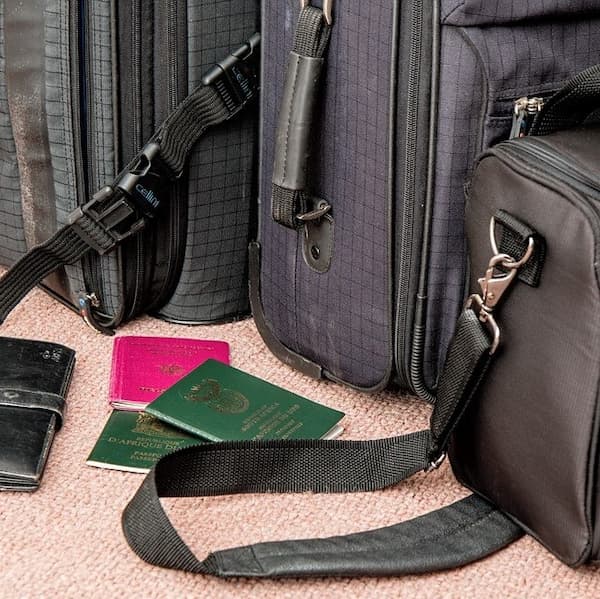Statistics
Russia's Passport Power Cut To "Junk", War Upends Global Mobility

A firm tracking the travel freedoms obtained by different countries' passports noted how the Russian invasion of Ukraine in February, sparking the biggest European land war since World War II, has dramatically changed the value of certain passports, reducing those of Russians to "junk".
Russia’s invasion of Ukraine has dramatically squashed travel
freedom and mobility in a large chunk of the world, hitting
Russians and reducing their passports to “junk” status, according
to a firm advising on the market for “golden visas.”
While a new kind of “Iron Curtain” falls on Russia, Ukrainians
have found their ability to move has jumped because countries
have opened doors to Ukrainians fleeing the country, noted
Henley &
Partners.
According to the latest Henley Passport Index, which is based on
exclusive and official data from the International Air Transport
Association, Ukraine has a visa-free/visa-on-arrival score of
143, a record high for the country. Ukraine ranks 34th on the
index (having climbed 26 places since 2012), while Russia trails
behind in 49th place, with a score of 117 – a gap that is likely
to increase even further in the coming months as a result of the
conflict, Henley & Partners said.
“As the value of the Russian passport rapidly declines and the
world opens its doors to Ukrainians, it is abundantly clear that
the passport you hold determines your fate and dramatically
impacts the opportunities you have. While it is impossible to
predict what the world will look like in the shadow of a new Cold
War, the latest index suggests that the divide between Russia and
much of the Western world will only increase,” Dr Christian H
Kaelin, chairman of Henley & Partners and the inventor of the
passport index concept, said.
The firm issues various measures of how much freedom or not a
passport grants a person to move around the world. In some ways
such movement is a barometer of how “globalised” the world is,
and is a measure that wealth managers, among others, can track to
get a sense of their clients’ personal and business lives.
Russia’s invasion of Ukraine has triggered the worst refugee
crisis in Europe since World War II, with more than four million
Ukrainians having fled to neighbouring countries. The US, the
European Union, Canada, the UK and other nations have imposed
harsh economic sanctions on Russia, in particular oligarchs and
others linked to Russian president Vladimir Putin. Russia has
also been kicked from the SWIFT banking network. The measures
raise questions about what wealth managers, lawyers and others
should
do about Russian clients more generally. The UK has halted
its Tier 1 investor visa regime which is aimed at high net worth
individuals. Russians were among the most enthusiastic
applicants.
In other measures, the EU, the US, Canada, and other Western
countries have closed their airspaces to Russian air carriers,
imposed stiff travel bans on individual Russian citizens, and in
many cases have stopped processing visa applications
altogether.
Japan, Singapore
Elsewhere on the ranking, Japan and Singapore continue to share
number one spot, with their passport holders able to access 192
destinations around the world visa-free, not taking temporary
Covid restrictions into account. Germany and South Korea hold
joint-second place, with a visa-free/visa-on-arrival score of
190, while Finland, Italy, Luxembourg, and Spain share third
place, with their passport holders able to access 189
destinations around the world without having to acquire a visa in
advance.
The UK, which recently dropped all remaining Covid-related
restrictions, now sits in fifth place, with a score of 187, with
the US just one place behind in sixth spot, with a score of 186.
Afghanistan remains at the bottom of the index with its nationals
only able to access 26 destinations visa-free.
A few weeks ago, the firm noted that in 2021, people from the UK,
the US and India were keenest to take advantage of
citizenship/residency-by-investment programmes, sometimes dubbed
“golden visas." Fears about tax hikes, a desire for more
options post-Brexit and political uncertainties helped fuel the
rise.